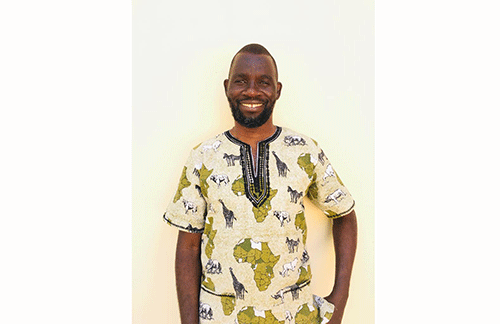Lasarus Nghifindwako
In accordance with Vision 2030, Namibia aspires to become a knowledge-based society in which education and technology play crucial roles in fostering socioeconomic development.
While the nation has made great advances in increasing the literacy rate among youths and expanding the educational infrastructure, adult education has lagged behind. It is time for Namibia to address this crucial aspect of its development strategy, as the capacity building of its adults is essential for fostering inclusive growth, reducing poverty, and achieving Vision 2030. A multifaceted strategy is required to bring adult education to the forefront of Namibia’s national agenda. First and foremost, a new adult education policy that addresses the unique requirements and challenges of this demographic segment is required. The policy should emphasise flexible learning pathways, such as vocational training and informal learning opportunities tailored to the requirements of adult learners. This strategy ensures access to adult education for those who have been excluded from traditional education systems due to poverty, social inequality, or geographical isolation. In addition, the policy must include incentives and support systems for adult learners, such as financial aid, career counselling, and job placement assistance, in order to prevent dropouts and assure successful integration into the labour market. Complementing the new policy, innovative adult education programmes tailored to the country’s future requirements must be developed. These programmes should equip adults with the necessary hard and social skills so that they can contribute to a flourishing knowledge-based economy. This competency-based approach prioritises training in high-growth sectors, such as sustainable agriculture, renewable energy, and information and communications technology (ICT). Moreover, nurturing the acquisition of soft skills, such as creative thinking, problem-solving, collaboration, and communication, will guarantee the holistic development of human capital and boost global market competitiveness.
In addition, leveraging ICT in adult education can transform the access to information and transfer of knowledge among students. Namibia can democratise education by leveraging the power of digital technologies, allowing geographically dispersed and economically disadvantaged populations to participate in continuous learning initiatives.
This connectivity enables adult students to access virtual classrooms and digital libraries, collaborate with peers, and receive instruction from educators from around the world. Incorporating ICT into adult education can also facilitate the continuous improvement of course content based on analytics, real-time feedback, and emergent trends, thereby making learning more engaging, pertinent, and impactful. To attain Vision 2030, it is essential to implement a comprehensive adult education strategy that includes policy reforms, innovative programmes, and ICT adoption. However, it is equally important for the government, the private sector, and civil society to collaborate in fostering adult learning and development. Adult education is crucial not only for promoting social equity and individual empowerment, but also for Namibia’s long-term prosperity and development. Namibia can empower its citizens to realise their full potential and contribute to a more sustainable, inclusive, and dynamic future by investing in adult education.
Lasarus Nghifindwako Hakwaake is a master in leadership in open education


